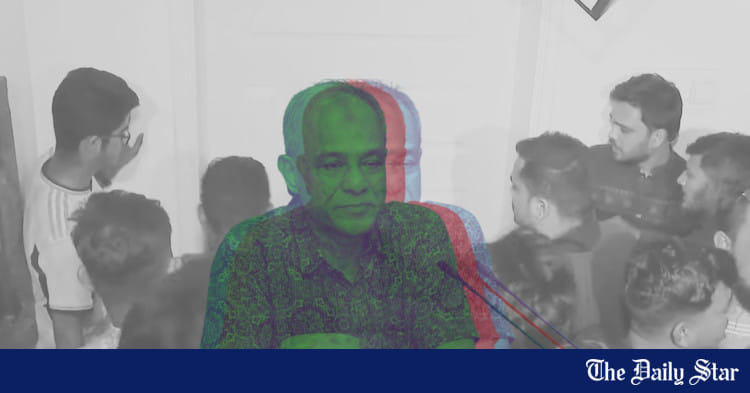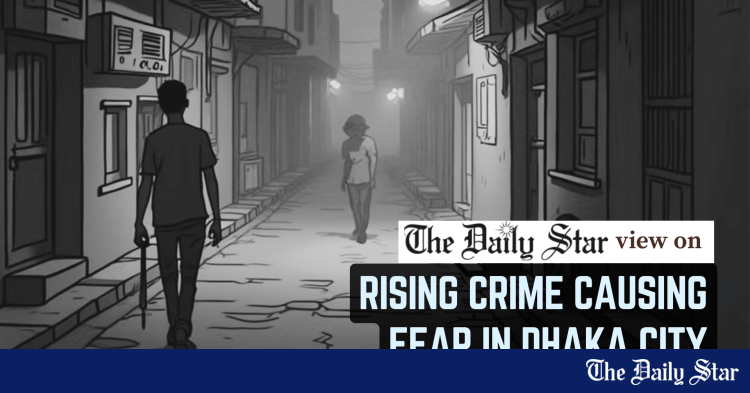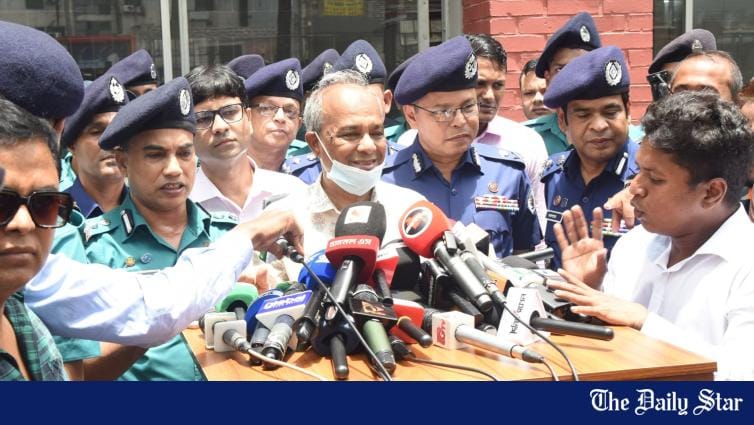Saif
Senior Member
- Messages
- 14,829
- Reaction score
- 7,674
- Origin

- Residence

- Axis Group

- Copy to clipboard
- Thread starter
- #21

Surreal times: Mob violence and feeble response
It is becoming difficult to say whether the government is trying to run a country in earnest or just playing house
Surreal times: Mob violence and feeble response

The times are indeed strange, bordering on the surreal.
A mob of a few hundred people stormed a house in Gulshan simply because there was rumour of a secret stash inside. They claimed that it belonged to one Tanvir Imam, son of HT Imam, who was a close confidante of the ousted prime minister, Sheikh Hasina. It did not. In fact, the house reportedly belonged to the father of a woman that Tanvir Imam had divorced almost two decades ago. But that is besides the point.
The mob was so oblivious to the impropriety of what they were perpetrating that they even had the bright idea of inviting Youtubers and TV reporters who filmed them live and broadcast the scenes as it happened. The police only managed to show up much later after the mob had broken in and was well into what is suspected to have been a looting spree, even though the police station is practically minutes—less than a kilometre—away. It is baffling that the police took so long as they did to respond to the emergency.
And now the chief adviser's press wing has issued a statement that essentially strives to explain the matter further saying that the former caretaker of the house had rounded up people to go in and loot the place. As if, that completely absolves the authorities of any responsibilities. As if, since the former caretaker was involved, it is a perfectly acceptable scenario that hundreds of strangers can force their way into a house.
The brief statement also cites the home ministry, which is even more ironic and rather reminiscent of Bengali movies where the police would appear only after the protagonist had beaten the villain to a bloody pulp to caution the hero saying "do not take the law into your hands." The home ministry statement urged everyone not to take the law into their hands!
Just the other day, a woman was almost lynched for smoking in public. Another suspected thief had his hands broken and eyes gouged out. The general climate of lawlessness has only become stronger because of weak policing. Strengthening law enforcement seems to be the least of the home adviser's concern. In fact, one wonders what his concerns are exactly, since he has not let the press hold him to account so far.
But from the home ministry's missive to the people, it is becoming difficult to say whether the government is trying to run a country in earnest or just playing house.
The times are indeed strange, bordering on the surreal.
A mob of a few hundred people stormed a house in Gulshan simply because there was rumour of a secret stash inside. They claimed that it belonged to one Tanvir Imam, son of HT Imam, who was a close confidante of the ousted prime minister, Sheikh Hasina. It did not. In fact, the house reportedly belonged to the father of a woman that Tanvir Imam had divorced almost two decades ago. But that is besides the point.
The mob was so oblivious to the impropriety of what they were perpetrating that they even had the bright idea of inviting Youtubers and TV reporters who filmed them live and broadcast the scenes as it happened. The police only managed to show up much later after the mob had broken in and was well into what is suspected to have been a looting spree, even though the police station is practically minutes—less than a kilometre—away. It is baffling that the police took so long as they did to respond to the emergency.
And now the chief adviser's press wing has issued a statement that essentially strives to explain the matter further saying that the former caretaker of the house had rounded up people to go in and loot the place. As if, that completely absolves the authorities of any responsibilities. As if, since the former caretaker was involved, it is a perfectly acceptable scenario that hundreds of strangers can force their way into a house.
The brief statement also cites the home ministry, which is even more ironic and rather reminiscent of Bengali movies where the police would appear only after the protagonist had beaten the villain to a bloody pulp to caution the hero saying "do not take the law into your hands." The home ministry statement urged everyone not to take the law into their hands!
Just the other day, a woman was almost lynched for smoking in public. Another suspected thief had his hands broken and eyes gouged out. The general climate of lawlessness has only become stronger because of weak policing. Strengthening law enforcement seems to be the least of the home adviser's concern. In fact, one wonders what his concerns are exactly, since he has not let the press hold him to account so far.
But from the home ministry's missive to the people, it is becoming difficult to say whether the government is trying to run a country in earnest or just playing house.



















